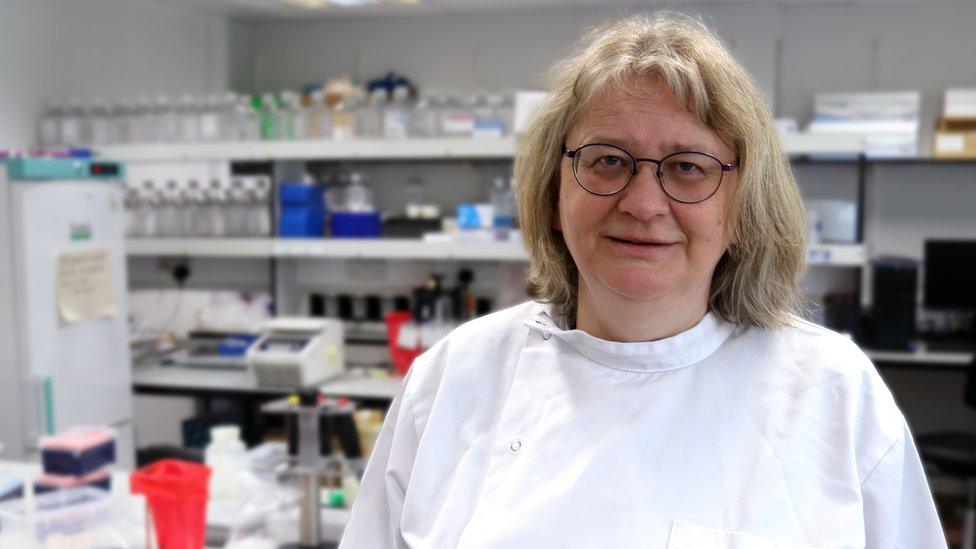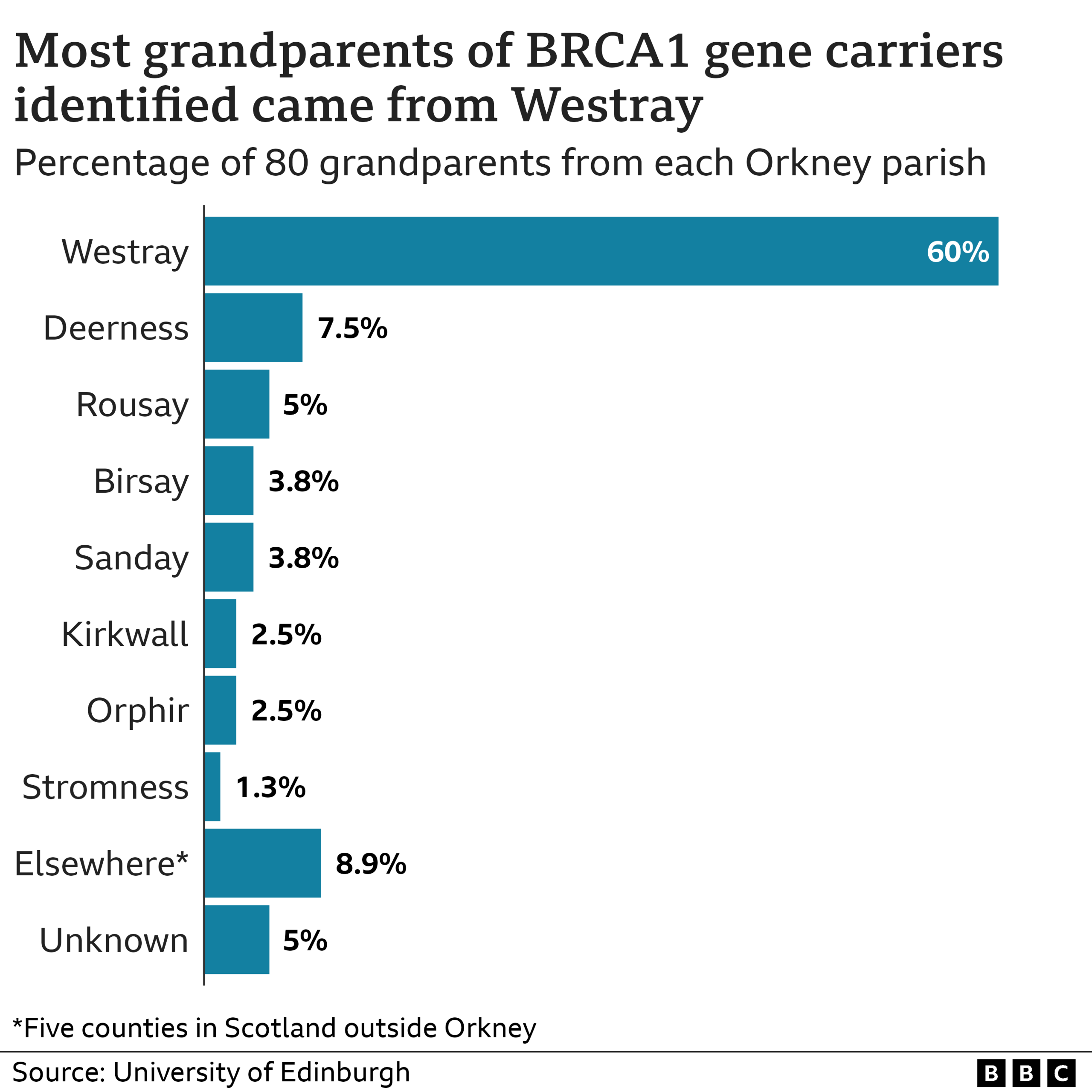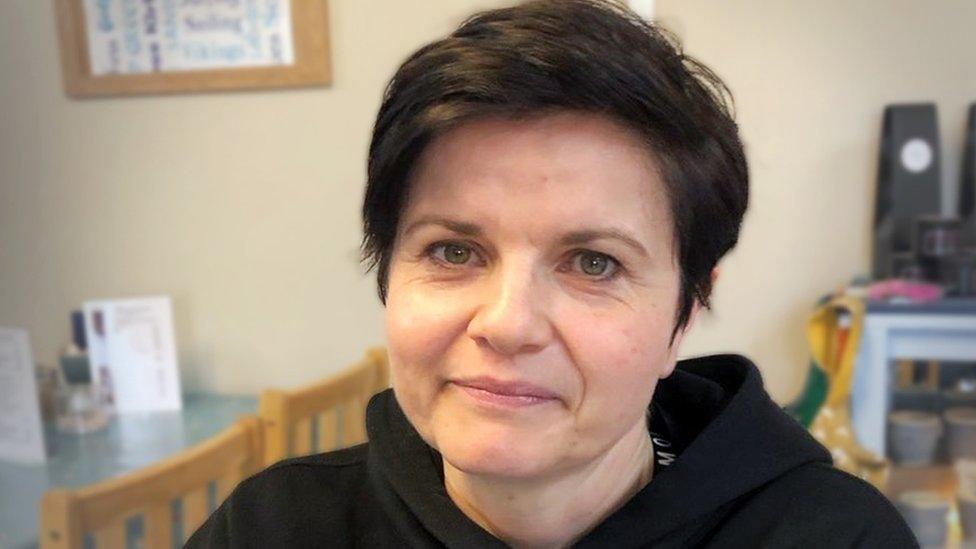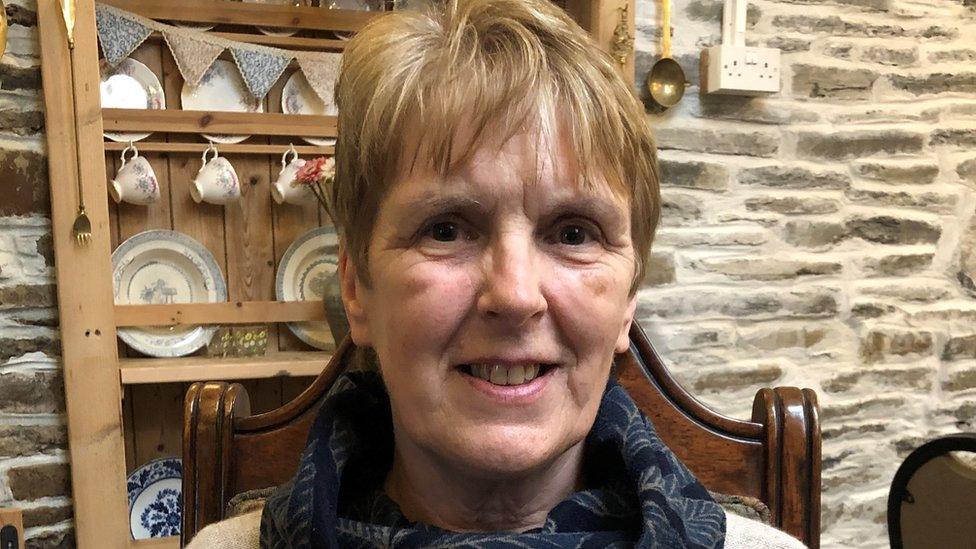Hundreds call helpline over Orkney cancer gene
- Published

Zosia Miedzybrodzka, professor of medical genetics at the University of Aberdeen, first began to suspect the Orkney link 25 years ago
Researchers have been inundated with queries about a gene variant linked to breast and ovarian cancer for people who have grandparents from Orkney.
The study suggests one in 100 people with grandparents from Orkney has a specific mutation of the BRCA1 gene.
The study found most of them could trace their family ancestry back to the island of Westray.
NHS Grampian said about 500 people had been in touch since details of the study were released.
Most of the emails and calls have been from the UK but people from the United States, Canada and Australia have also been in touch.
Currently, in Scotland the test for the specific mutation of the BRCA1 gene is only available to those who know of a direct family connection to the gene, or have a history of ovarian or breast cancer in their family.
But planning is under way for a small pilot trial that will offer testing to anyone living in Westray with a Westray-born grandparent, regardless of a family history.
If the pilot is successful, the long-term aim is to offer the test to everyone in Scotland with a Westray-born grandparent who wants it.
Prof Zosia Miedzybrodzka, the director of the NHS Grampian Clinical Genetics service, part of the team which identified the new variant, said most people who had been in touch had been asking "can they get the test".
She told BBC Radio Scotland's Drivetime programme: "But they are also wondering whether the history they have with breast or ovarian cancer, combined with coming from Orkney is important to them, and they are being directed to routine clinical care where we can already do testing if there is a history [of cancer] in the family.
"What we are looking to do now is offer the test to people who don't have a history."

The Orkney study is believed to be the first time a geographic ancestral link of this kind has been made within the UK.
The researchers also discovered the specific Orkney gene variant in smaller numbers in genetic testing across the UK and even in the US.
Previous research has found that women from certain ethnic backgrounds, such as Ashkenazi Jews, also have a high rate of the specific BRCA gene variant.
Across the UK, about 1 in 1,000 people have a BRCA1 mutation, which can leave women at a higher risk of ovarian and breast cancer.
The BRCA genes are present in every person, both men and women, but when a fault occurs in one of them it can result in DNA damage and lead to cells becoming cancerous.
People with a genetic variant have a 50% chance of passing it on to their children.
- Published17 March 2023

- Published16 March 2023
